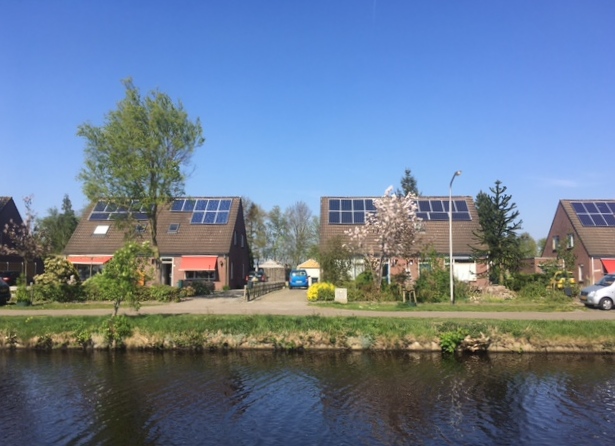Solar panel owners face hefty fees to “sell” excess electricity

Homeowners with solar panels could soon have to pay more money in fees than they would make by selling surplus electricity back into the grid, according to consumer group Vereniging Eigen Huis.
The home owners lobby group said on Wednesday that two energy firms, Innova Energie and its subsidiary Gewoon Energie, plan to introduce negative feed-in tariffs from 2027 and is urging politicians to intervene.
The move is linked to the government’s decision to stop allowing households to offset the electricity they supply back to the grid against what they use. Instead, they will receive a fixed payment for every kilowatt hour (kWh) returned to the grid, but will also pay to do so.
At Innova Energie and Gewoon Energie, customers will receive 5.9 cents per kWh in compensation but pay 11.5 cents in fees – meaning they would lose 5.6 cents for every unit of power fed back into the grid.
“The law allows companies to charge more than they pay out, and now it’s actually happening,” said director Cindy Kremer. “This is unacceptable. People are being financially punished for making their homes more sustainable.
“The end of net metering has already slowed solar panel sales, and this could make homeowners start taking panels off their roofs. They are supposed to be a key part of the energy transition.”
Kremer said it is almost impossible for solar panel owners to avoid sending power to the grid. “Energy companies, politicians and grid operators keep saying people should use more of their own solar power, but that’s very difficult and often costly to do,” she said.
The organisation wants the government to guarantee by law that feed-in tariffs will always remain net positive for consumers.
Transparency
Vereniging Eigen Huis has also called on energy suppliers to clarify their 2027 rates. While some have already announced their plans, most offer only a marginal benefit, and many have yet to disclose any figures.
“Without transparency, consumers cannot make informed decisions about long-term energy contracts,” Kremer said.
In August the Consumentenbond called for more transparency from energy companies on the costs of supplying electricity to the grid. It also says a uniform calculation method should be adopted so householders can compare prices.
Thank you for donating to DutchNews.nl.
We could not provide the Dutch News service, and keep it free of charge, without the generous support of our readers. Your donations allow us to report on issues you tell us matter, and provide you with a summary of the most important Dutch news each day.
Make a donation